Daisuke Itō is a Actor, Director, Scriptwriter and Director of Photography Japonais born on 13 october 1898 at Uwajima (Japon)
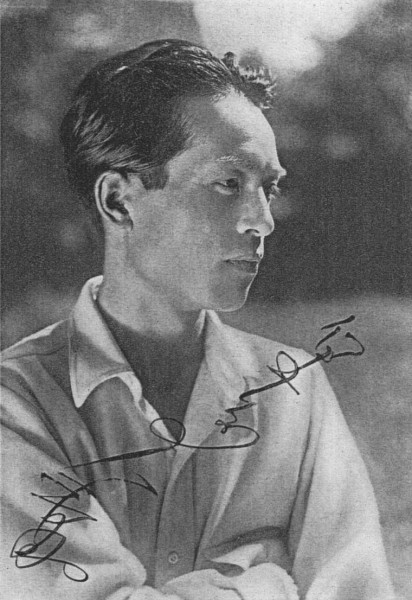
Daisuke Itō (伊藤 大輔, Itō Daisuke, 12 October 1898 - 19 July 1981) was a Japanese film director and screenwriter who played a central role in the development of the modern jidaigeki and samurai cinema.
En 1920, Daisuke Itō s'installe à Tokyo et partage le même appartement que Mansaku Itami. Il fréquente l'école d'acteurs de la Shōchiku mais il commence bientôt à écrire des scénarios sur le conseil de Kaoru Osanai. Son premier scénario est écrit pour le film Renaissance (Shinsei) qui est aussi le premier film produit par les studios de la Shochiku à Kamata. Le film est un succès et Daisuke Itō écrit de 1920 à 1923 plus d'une cinquantaine de scénarios pour la Shochiku qu'il finit par quitter, car il aspire à la réalisation.
Il fait ses débuts de réalisation en 1924 à la Teikoku Kinema avec Journal d'ivresse (Shuchū nikki). Après avoir essayé de créer sa propre société de production, il rejoint la Nikkatsu et se fait connaître en 1927 avec le film en trois parties Le Journal de voyage de Chuji (Chūji tabi nikki), à présent considéré comme l'un des chefs-d’œuvre du jidaigeki.
Autour des années 1930, Daisuke Itō est le réalisateur japonais qui connait le plus grand succès tant artistique que commercial. Particulièrement à l'époque du cinéma muet, il est reconnu pour un style très mobile de caméra qui lui vaut le surnom de Idō daisuki (« Aime le mouvement »), qui est un jeu de mots sur son nom. Les héros de ses films, comme Tange Sazen et Kunisada Chūji, sont souvent des insatisfaits et des nihilistes solitaires.
À partir des années 1950, Daisuke Itō devient indépendant et offre ses services à diverses sociétés de production. Il est toutefois critiqué pour ne pas avoir su se renouveler. Kenji Mizoguchi dira de lui : « Daisuke Itō, qui plus que tous a codifié le film historique pour des décennies, donnant à ses films une vitalité éblouissante, a trouvé son seul recourt dans la répétition de ses innovations initiales, de façon de plus en plus monotone et stérile ».
Bien qu'ayant moins de succès après la venue du cinéma sonore, Itō travaille avec de nombreux grandes vedettes du jidaigeki, en particulier Denjirō Ōkōchi, Kinnosuke Nakamura, Raizō Ichikawa et Tsumasaburō Bandō pour des studios tels que la Nikkatsu, la Daiichi Eiga et la Daiei au cours d'une carrière qui couvre près d'un demi-siècle. Daisuke Itō fait ses adieux au cinéma avec le scénario de La Légende de Musashi : Duel à mort (Shinken shobu) réalisé par Tomu Uchida, son 200e scénario.
En 1991, une copie partielle (96 minutes) de Le Journal de voyage de Chuji (Chūji tabi nikki), longtemps considéré comme un film perdu, est découverte et projetée en public.
Daisuke Itō a tourné près de cent films entre 1924 et 1970 et a écrit deux cents scénarios de 1920 à 1971.
Source : Wikidata
Daisuke Itō

- Infos
- Photos
- Best films
- Family
- Characters
- Awards
Biography
Né à Uwajima dans la préfecture d'Ehime, Daisuke Itō fréquente le collège de Matsuyama où il fait la connaissance de Mansaku Itami, qu'il fera entrer plus tard dans le monde du cinéma, et du futur poète Kusatao Nakamura. Tous trois fondent une revue littéraire amateure, Rakuten.En 1920, Daisuke Itō s'installe à Tokyo et partage le même appartement que Mansaku Itami. Il fréquente l'école d'acteurs de la Shōchiku mais il commence bientôt à écrire des scénarios sur le conseil de Kaoru Osanai. Son premier scénario est écrit pour le film Renaissance (Shinsei) qui est aussi le premier film produit par les studios de la Shochiku à Kamata. Le film est un succès et Daisuke Itō écrit de 1920 à 1923 plus d'une cinquantaine de scénarios pour la Shochiku qu'il finit par quitter, car il aspire à la réalisation.
Il fait ses débuts de réalisation en 1924 à la Teikoku Kinema avec Journal d'ivresse (Shuchū nikki). Après avoir essayé de créer sa propre société de production, il rejoint la Nikkatsu et se fait connaître en 1927 avec le film en trois parties Le Journal de voyage de Chuji (Chūji tabi nikki), à présent considéré comme l'un des chefs-d’œuvre du jidaigeki.
Autour des années 1930, Daisuke Itō est le réalisateur japonais qui connait le plus grand succès tant artistique que commercial. Particulièrement à l'époque du cinéma muet, il est reconnu pour un style très mobile de caméra qui lui vaut le surnom de Idō daisuki (« Aime le mouvement »), qui est un jeu de mots sur son nom. Les héros de ses films, comme Tange Sazen et Kunisada Chūji, sont souvent des insatisfaits et des nihilistes solitaires.
À partir des années 1950, Daisuke Itō devient indépendant et offre ses services à diverses sociétés de production. Il est toutefois critiqué pour ne pas avoir su se renouveler. Kenji Mizoguchi dira de lui : « Daisuke Itō, qui plus que tous a codifié le film historique pour des décennies, donnant à ses films une vitalité éblouissante, a trouvé son seul recourt dans la répétition de ses innovations initiales, de façon de plus en plus monotone et stérile ».
Bien qu'ayant moins de succès après la venue du cinéma sonore, Itō travaille avec de nombreux grandes vedettes du jidaigeki, en particulier Denjirō Ōkōchi, Kinnosuke Nakamura, Raizō Ichikawa et Tsumasaburō Bandō pour des studios tels que la Nikkatsu, la Daiichi Eiga et la Daiei au cours d'une carrière qui couvre près d'un demi-siècle. Daisuke Itō fait ses adieux au cinéma avec le scénario de La Légende de Musashi : Duel à mort (Shinken shobu) réalisé par Tomu Uchida, son 200e scénario.
En 1991, une copie partielle (96 minutes) de Le Journal de voyage de Chuji (Chūji tabi nikki), longtemps considéré comme un film perdu, est découverte et projetée en public.
Daisuke Itō a tourné près de cent films entre 1924 et 1970 et a écrit deux cents scénarios de 1920 à 1971.
Usually with
Filmography of Daisuke Itō (15 films)
Actor
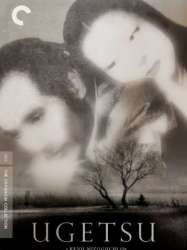 , 2h30
, 2h30Directed by Kaneto Shindō
Origin Japon
Genres Documentary
Themes Documentary films about business, Documentary films about the film industry, Documentaire sur une personnalité
Actors Takako Irie, Daisuke Itō, Kyōko Kagawa, Matsutarō Kawaguchi, Michiyo Kogure, Machiko Kyō
Rating71%





Director

Scarred Yosaburo (1960)
, 1h34Directed by Daisuke Itō
Genres Drama, Action
Actors Ichikawa Raizō VIII, Keiko Awaji, Jun Tatara, Tamao Nakamura, Ryosuke Kagawa, Kumeko Urabe
Rating70%





The film depicts the scarring of Yosaburo (Raizo Ichikawa) at the hands of yakuza thugs who catch him with mistress of the gang boss. Despite the physical and emotional scars he now carries with him, Yosaburo falls for a young noblewoman (Manami Fuji). The rest of the film follows the two as they fend off attacks from gangs and the police.
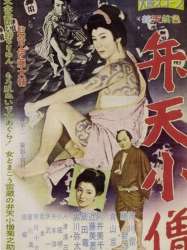
The Gay Masquerade (1958)
, 1h26Directed by Daisuke Itō
Origin Japon
Genres Drama, Comedy-drama
Themes Théâtre, Films based on plays
Actors Ichikawa Raizō VIII, Shintarō Katsu, Yatarō Kurokawa, Ryosuke Kagawa, Saburo Date
Rating65%





Toyama Saemonnojo, un dignitaire du shogunat séquestre dans sa demeure la belle Ohan afin d'obtenir ses faveurs. Mais Benzen Kozō, un fieffé bandit le fait chanter. Ce dernier intrigue pour soutirer de l'argent au dignitaire mais aussi pour séduire la jeune fille...

An Heir's Place (1953)
, 2h4Directed by Daisuke Itō
Origin Japon
Genres Drama
Actors Kazuo Hasegawa, Kinuyo Tanaka, Keiko Kishi, Chieko Higashiyama, Kumeko Urabe, Saburo Date
Yagorō Hōshō est le chef d’une dynastie d’acteur de théâtre nô. Il conduit avec la plus stricte rigueur la formation de son fils appelé à lui succéder. Mais ce dernier s’enfuit et tente de se suicider peu avant la représentation qu'il doit donner devant le Shogun.
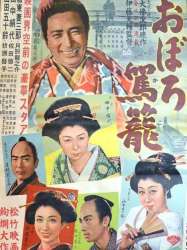
The Inner Palace Conspiracy (1951)
, 1h33Directed by Daisuke Itō
Origin Japon
Genres Adventure, Historical
Actors Tsumasaburō Bandō, Kinuyo Tanaka, Isuzu Yamada, Keiji Sada, Daisuke Katō, Toru Abe
Rating54%





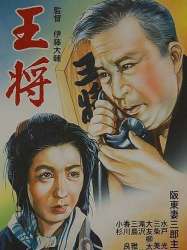
The Grand Master (1948)
, 1h34Directed by Daisuke Itō
Origin Japon
Genres Drama, Romantic comedy
Actors Tsumasaburō Bandō, Isamu Kosugi, Mitsuko Mito, Ryūtarō Ōtomo, Tatsuo Saitō, Osamu Takizawa
Rating68%





Japon, début du XXe siècle. Dans un quartier pauvre d'Osaka, Sankichi Sakata fabrique des sandales et est un amateur de shogi. Mais sa passion pour ce jeu d'échecs japonais devient une obsession, prenant le pas sur sa vie de famille et son travail. Au prix de durs sacrifices consentis par son épouse et de maintes péripéties, il parvient à battre le grand champion de shogi.
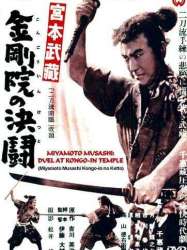 , 1h15
, 1h15Directed by Daisuke Itō
Origin Japon
Genres Drama, Action
Themes Samurai films
Actors Chiezō Kataoka, Ryūnosuke Tsukigata, Ryosuke Kagawa, Haruyo Ichikawa
Rating63%





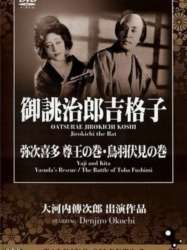
Jirokichi the Rat (1931)
, 1hDirected by Daisuke Itō
Origin Japon
Genres Drama, Action
Actors Denjirō Ōkōchi, Minoru Takase, Nobuko Fushimi
Rating67%





Japon, 1831. Jirokichi est un célèbre bandit justicier qui ne s'en prend qu'aux plus riches. Les archives de la police rapportent qu'il aurait déjà cambriolé 99 résidences de seigneurs pour un butin estimé de 7931 ryō. Poursuivi par les autorités, Jirokichi fuit vers Osaka par bateau. Lors d'une escale, il échappe à la police qui effectue une fouille grâce à la complicité de la belle Osen. Les deux jeunes gens deviennent amants et Jirokichi apprend que Nikichi, le frère d'Osen, un yakuza endetté, a pour projet de vendre sa sœur à une maison close.
 , 1h36
, 1h36Directed by Daisuke Itō
Origin Japon
Genres Drama, Action
Themes Seafaring films, Sports films, Transport films, Martial arts films, Samurai films, Yakuza films, Political films, Gangster films
Actors Denjirō Ōkōchi, Ranko Sawa
Rating71%





The three films focus on the travels of the kindly yakuza boss Kunisada Chūji. The existing print begins with Chuji on the road, fleeing the law while taking care of Kantaro, the son of a dead friend. He leaves Kantaro with Kabe Yasuemon, an honorable local boss, but is shocked to find out that his own men have been committing robberies using his own name. Angry, Chuji hits the road and eventually settles in another town, assuming another name and working as a clerk for a sake brewery. Okuma, the daughter of the brewer, falls in love with Chuji, but he ignores her. When he saves her brother from trouble with the Otozo gang, his identity is revealed and the police close in. Okume kills herself and Chuji flees, but the palsy he had been suffering from worsens and he is finally caught. His henchmen, however, succeed in rescuing him and bring him back to his home village. Unable to walk and confined to bed, Chuji is hidden in a storehouse. His woman, Oshina, discovers that one of his men has betrayed him, but it is too late. Despite the valiant efforts of his men to hold off the police, Chuji is finally arrested by the authorities.
Scriptwriter
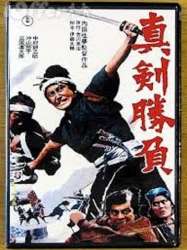 , 1h15
, 1h15Directed by Tomu Uchida
Origin Japon
Genres Drama, Action, Historical
Themes Samurai films
Actors Kinnosuke Nakamura, Rentarō Mikuni
Roles Adaptation
Rating65%





Miyamoto Musashi rend visite à Baiken Shishido, un redoutable guerrier qui maitrise la faucille de guerre.
 , 1h27
, 1h27Directed by Kenji Misumi
Genres Drama, Action, Adventure
Themes Seafaring films, Sports films, Transport films, Martial arts films, Samurai films, Films about chess, Yakuza films, Films about disabilities, Gangster films
Actors Shintarō Katsu, Mikio Narita, Saburo Date, Ryō Horikawa
Roles Ecrivain
Rating72%





On a boat trip to Honshu island, Zatoichi (Katsu) makes the acquaintance of Jumonji (Narita), an expert shogi (Japanese chess) player and swordsman. Once on Honshu, a group of men that had tried to cheat Zatoichi at dice try to take revenge upon him- only for Ichi to turn the tables on them in the tussle. However, Miki, the niece of a woman named Otane, is injured in the confusion, compelling Ichi to go to great lengths to procure the medicine needed to cure her injury. When she recovers, the child sincerely thanks him, leaving him overwrought with emotion.
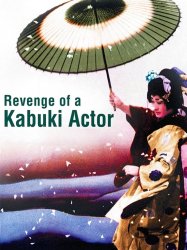
An Actor's Revenge (1963)
, 1h53Directed by Kon Ichikawa
Origin Japon
Genres Drama
Themes Films about television
Actors Kazuo Hasegawa, Ayako Wakao, Fujiko Yamamoto, Ichikawa Raizō VIII, Shintarō Katsu, Eiji Funakoshi
Roles Responsable de l'adaptation
Rating73%





Three men, Sansai Dobe (Ganjirō Nakamura), Kawaguchiya (Saburō Date) and Hiromiya (Eijirō Yanagi) are responsible for the deaths of seven-year-old Yukitarō’s mother and father. Yukitarō is adopted and brought up by Kikunojō Nakamura (Chūsha Ichikawa), the actor-manager of an Osaka kabuki troupe. The adult Yukitarō (Kazuo Hasegawa) becomes an onnagata, a male actor who plays female roles. He takes the stage name Yukinojō. Like many of the great onnagata, particularly of the seventeenth and eighteenth centuries, he wears women’s clothes and uses the language and mannerisms of a woman offstage as well as on. Many years later, the troupe pays a visit to Edo, where the three men responsible for his parents’ deaths now live. Yukinojō brings about their deaths by means of various stratagems, then, apparently overcome by what he has done, retires from the stage and disappears, no-one knows where. The events of the film are coolly observed and sardonically commented on by the Robin-Hood-like thief Yamitarō, also played by Hasegawa.

Scarred Yosaburo (1960)
, 1h34Directed by Daisuke Itō
Genres Drama, Action
Actors Ichikawa Raizō VIII, Keiko Awaji, Jun Tatara, Tamao Nakamura, Ryosuke Kagawa, Kumeko Urabe
Roles Writer
Rating70%





The film depicts the scarring of Yosaburo (Raizo Ichikawa) at the hands of yakuza thugs who catch him with mistress of the gang boss. Despite the physical and emotional scars he now carries with him, Yosaburo falls for a young noblewoman (Manami Fuji). The rest of the film follows the two as they fend off attacks from gangs and the police.
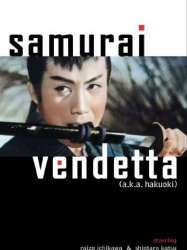
Samurai Vendetta (1959)
Directed by Kazuo Mori
Genres Drama, Action
Actors Ichikawa Raizō VIII, Shintarō Katsu, Ryosuke Kagawa, Saburo Date
Roles Writer
Rating66%





The film features Raizo Ichikawa as Tange Tanzen, and Shintaro Katsu as Yasubei Nakayama (later becoming Yasubei Horibe when he is adopted into another family), and opens with Yasubei simultaneously dueling several members of a rival dojo (school of swordsmanship). Yasubei deftly beats his opponents, but is expelled from his school as a result so as not to create enmity between the two schools. Tange, who is the best swordsmen of the defeated school, is expelled from the school because he was present at the duel but failed to intervene to help his fellow dojo-mates. He argued that he could not interfere because he was then on shogunate duties, but his colleagues accused him of cowardice and he was thereby expelled. After his expulsion, Tange comes across the maiden Chiharu, who was being attacked by feral dogs. Tange protects Chiharu (a member of the Uesagi Clan) and in the process kills one of the attacking "noble" dogs. However, the act carries with it the penalty of death due to the current Shogun's affinity for dogs. Yasubei helps to cover up Tange's act, but only as a way to become closer to Chiharu. It is because of his hidden affection for Chiharu that Yasubei considers aligning with the Uesagi clan (which is loyal to Chamberlain Kira who is later targeted for a revenge killing by the 47 Ronin).
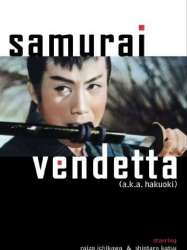
Samurai Vendetta (1959)
Directed by Kazuo Mori
Genres Drama, Action
Actors Ichikawa Raizō VIII, Shintarō Katsu, Ryosuke Kagawa, Saburo Date
Roles Writer
Rating66%





The film features Raizo Ichikawa as Tange Tanzen, and Shintaro Katsu as Yasubei Nakayama (later becoming Yasubei Horibe when he is adopted into another family), and opens with Yasubei simultaneously dueling several members of a rival dojo (school of swordsmanship). Yasubei deftly beats his opponents, but is expelled from his school as a result so as not to create enmity between the two schools. Tange, who is the best swordsmen of the defeated school, is expelled from the school because he was present at the duel but failed to intervene to help his fellow dojo-mates. He argued that he could not interfere because he was then on shogunate duties, but his colleagues accused him of cowardice and he was thereby expelled. After his expulsion, Tange comes across the maiden Chiharu, who was being attacked by feral dogs. Tange protects Chiharu (a member of the Uesagi Clan) and in the process kills one of the attacking "noble" dogs. However, the act carries with it the penalty of death due to the current Shogun's affinity for dogs. Yasubei helps to cover up Tange's act, but only as a way to become closer to Chiharu. It is because of his hidden affection for Chiharu that Yasubei considers aligning with the Uesagi clan (which is loyal to Chamberlain Kira who is later targeted for a revenge killing by the 47 Ronin).
 Connection
Connection



